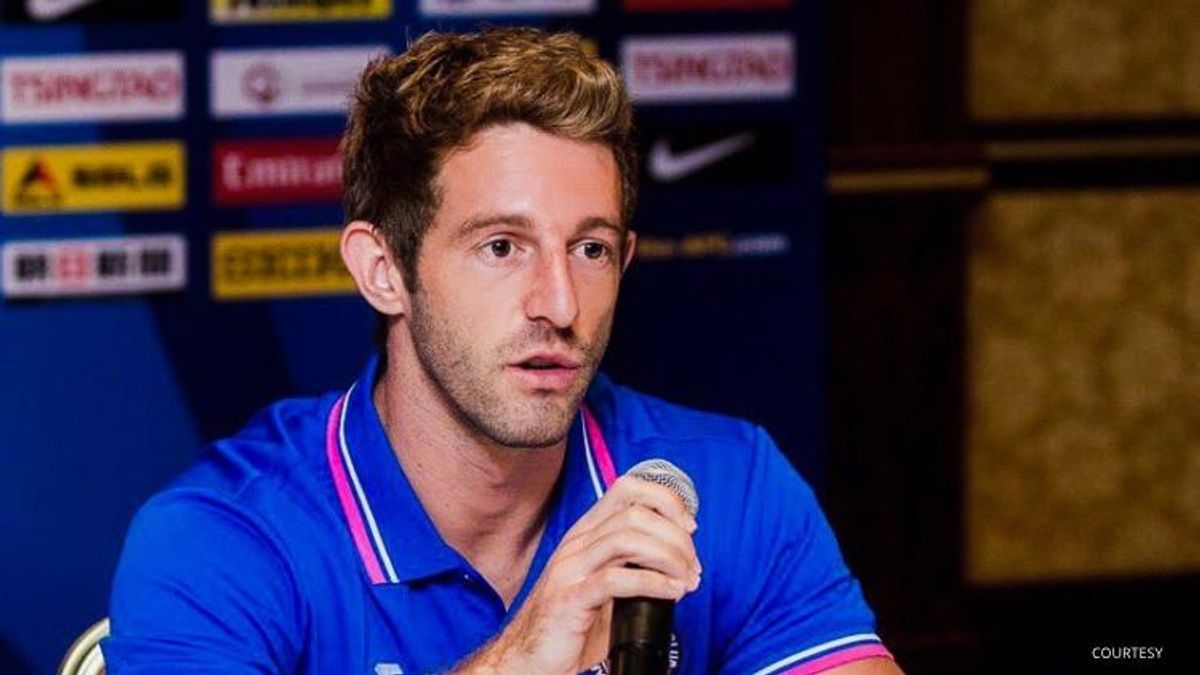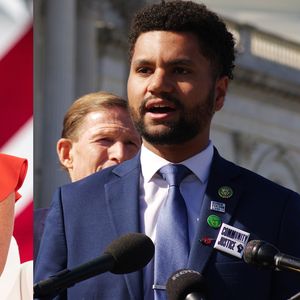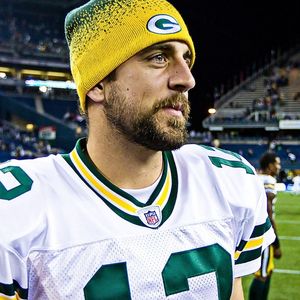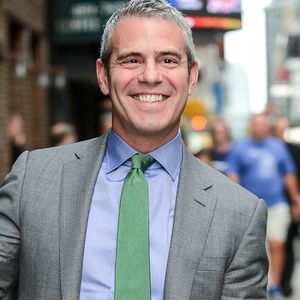
English former professional soccer player, Thomas Beattie, came out as gay in a recent story for ESPN. Now, he's opening up about his journey in an exclusive interview with The Advocate.
Beattie -- whose professional career spans over a decade in professional leagues across the United States, the United Kingdom, Canada, and Asia -- is the third male professional player in British sports history to come out after Justin Fashanu in 1990 and Robbie Rogers in 2013, and only the second professional soccer player from the United Kingdom to come out.
Additionally, Beattie is the first male professional soccer player in Asia to come out and the first male professional athlete to play in any of the major Asia pro sports leagues.
Beattie led a victorious career in soccer before sustaining a serious head injury in 2015, which forced him to end his playing career early. Now a successful entrepreneur, he is the cofounder of several companies based in Asia, the U.S., and the U.K, specializing in mobile technology, product development, real estate, and early stage investment. He's also continued to work in sports and nutrition by helping to train professional athletes in their off season.
Born in Yorkshire, England, Beattie's sports talents were apparent at an early age as he competed in track and field, swimming, tennis, and football. He was scouted by Hull City A.F.C., a professional soccer club in Yorkshire, and worked his way up the ranks into the reserve team.
"I was playing sport shortly after I could walk," he tells The Advocate. "I played a whole host of sports competitively but I signed with a professional club in England at 10 years old. I played football [soccer] because I loved it, not necessarily because I wanted to be a professional. As I started to get in to my early teens I realized I had a chance of playing professionally and it fueled my passion for playing more and more. This was the point where my dreams were starting to manifest into reality."
When Beattie was 19, he moved to the U.S. on a soccer scholarship to Limestone College in South Carolina, where he studied Biology and Physical Education. For him, it was an opportunity to escape the isolation of being in the closet.
While at Limestone, he became the most decorated college athlete in the program's history and was the first ever Adidas All-American Athlete for the university. He was later named to their sports Hall of Fame in 2018.

In his college career, Beattie registered 37 career goals and 12 assists for 86 career points and became the first player in team history to earn All-American honors after leading his team to the NCAA Sweet Sixteen.
Upon graduation, he found a sports agent who brought him back to Europe to play for Kilmarnock F.C in Scotland and Sandefjord Football of the Norwegian Premier League, the country's premiere football competition before deciding to return to North America to play in the Canadian Soccer League, where he won the SL Rookie of the Year Award. He went on to compete for Ottawa FC where he captained the team into the CSL play-offs.
Through it all, Beattie says he felt pressure from society to remain hush-hush about his sexuality.
"I never thought about coming out whilst playing," he explains. "I literally felt like I had to sacrifice one of the two: who I am, or the sport I loved before I could remember. I used football as a form of escapism and in many ways it saved me, until I reached the point in life where there was some personal growth. I was standing still on that front. Society [told] me masculinity is linked to sexuality and so being an athlete playing a physical sport felt like a huge contradiction."
"It's still a new and current process for me to be honest," he says of being out. "I told close friends and family three months ago, which was when I decided to embark on the journey of speaking openly about it. As an athlete it was something that was unspoken about, which is why I want to share my story in hopes that there will eventually be more support for people in a similar situation. I recently started to tell some of my old team mates who have been amazing and treated me not a single ounce differently. They know I'm the same lad I was 10 minutes before telling them so that's been refreshing."

After playing in Canada, he ultimately headed to Asia and signed for Singapore's Hougang United FC of the premiere league, S. League. The next season he was signed by his former U.K. manager with Warriors FC of Singapore (his team's rival), where he won the premiere league title in his debut season.
He was an integral part in the rebirth of the club that secured the Singapore Premier League championship title, so he returned to the club the following 2015-16 season. He qualified for the prestigious AFC Champions League (Asian Champions League), the biggest premier club tournament in Asia, but shortly after the tournament, he sustained a life-threatening injury in a head collision during a game resulting in a brain hemorrhage and facial fractures to the cheek, nose, eye sockets and forehead.
The injury forced him to bring his professional career to an abrupt end. Since that time, he's lived happily in Singapore where he continues to birth new business endeavors. Last year, CLEO magazine (a monthly women's magazine in Singapore) named him one of their bachelors of the year.
"I've been very fortune that I'm surrounded by supportive, intelligent creative business partners and very supportive investors and mentors," he says. "It's allowed me to find myself as a business owner. There are a lot of synergies with sport and business. Sport reveals character so these traits have helped in many ways. It's an exciting stage of my life where I've been able to create visions and see them come to life and I'm truly living in the moment."
"Living abroad is something I've been used to since a very young age. Football was a vehicle for me to experience other cultures and see the world through other people's eyes so for that I will always be grateful. The environment I live in is very conducive for me to feel comfortable, the challenge has been more so about my own comfortability with regards to learning, embracing and accepting who I am."
Earlier in the year, Beattie made the decision to come out because he reached a point personally where he knew he was never going to "find contentment" in any material things and pursing that had become largely unfulfilling.
"On a bigger scale, I wanted to use my platform to make steps toward living in a more accepting society," he adds. "I don't want people in sport, especially, to continue to feel like they have to sacrifice who they are to co-exist in sport. Silence is safe and I could have gone down that road but I have found purpose in the challenge of speaking and being a voice for a community that until very recently petrified me. I think currently there are many forms of prejudice coming to light and I think the theme is about inclusion and equality and being heard and this is something I'm passionate about contributing towards."
Before Beattie, U.K. soccer player Justin Fashanu came out publicly in 1990, after which he received severe bullying on and off the field from players and fans. Fashanu was groundbreaking on several fronts as the first Black footballer to command a PS1million transfer fee when he transferred from Norwich City to Nottingham Forest in 1981.
In 1998, Fashanu died by suicide soon after he was accused of sexually assaulting a 17 year old boy -- an accusation he denied in his suicide note.
Earlier this year, Fashanu was inducted into the National Football Museum Hall of Fame. His life has since been used as a symbol for the importance of creating a welcoming environment for LGBTQ+ players.
"I'm hoping my coming out can start a new level of conversation in football," says Beattie, who is only the second former professional soccer player in the U.K. to come out. "Beyond creating safe environments for equality and inclusion, it's going to take real and meaningful leadership. This is a systemic and institutional issue, therefore there needs to be a real plan to address this systemic challenge that keeps our athletes living in silence and secretly in the closet. I think that LGBTQ+ athletes need to be at the table to help and I'm hoping I can be one of those voices for change in football."
Beattie is also hoping his story can inspire the next generation of queer athletes.
"I hope to be a positive example for players and also gay sports fans," he says. "Mentally there are often many challenges associated with self acceptance and it can be a huge weight to carry. I hope to represent the LGBTQ+ community to the best of my ability and I think the more people involved in sport who are from that community, the more gay sports fans will resonate and feel connected. Being gay can often leave you feeling lonely and singled out, but hopefully as more players come out, there will be more representation at the professional level of sport."
"Who you are and the things you love to do don't have to be enemies," he continues. "I want to be a source of support for anyone who resonates with my story and for the world of sport. I would love to entertain conversations about creating a solid plan to make sport a more inclusive world for all communities. It doesn't seem like the LGBTQ+ community has much representation in the world of professional football and I hope over time this changes. If I can do anything to assist that process, I hope to do so."






















































































